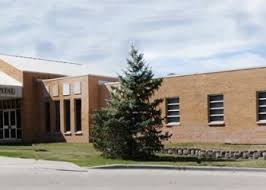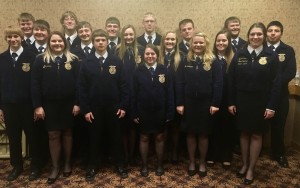
By Katie Hunhoff
My dad likes to tell the story of a favorite teacher who told students that goldfish don’t mind living in small fish bowls because their brains are very small, and every time they swim around the bowl, it’s a new experience. “Don’t be like the goldfish,” the teacher preached.
I thought of the goldfish story when I heard about the latest plans from Washington to cut funding for the National Endowment for the Humanities and the National Endowment for the Arts. Without the valuable NEH and NEA programs, I believe we would be like goldfish — swimming at random without much memory of the past and far fewer tools and skills to guide us into the future.
The humanities have always been a part of my life. My parents started South Dakota Magazine in 1985, and after college I returned to help with the family business. We have collected and told thousands of South Dakota stories.
My dad admits he had no noble goal at first. “Along the way, however, I realized our stories have worth beyond entertainment,” he once wrote. “The stories tell us who we are as South Dakotans. Reading the magazine should be like seeing your reflection in the lake. The man grins and you grin. He squirms and so do you. He grows sad and you know why.”
It took him a while to understand that importance: “Not because I’m an idiot, but because I was focused on stories, ads and renewal checks so I wouldn’t have to find other work. But now I know how we are all connected.”
We are all connected geographically, culturally, and through celebration and tragedy. Like my dad, we are all focused on paying the bills. The humanities help us keep an eye on the bigger picture. What is the importance of the human experience? And how can we make it better?
When Governor Dennis Daugaard appointed me to the board of the SDHC, I realized what we were doing at the magazine — telling South Dakota’s unique stories — was an important part of the humanities. And therefore, we are preventing our human experience from being as mundane and pointless as a goldfish in a bowl. The humanities create a forum for us to learn from the past and prepare for the future.
The National Endowment for the Humanities receives only about $150 million (from a $1.1 trillion federal budget), but the programs it funds make a substantial impact. NEH goals include strengthening teaching and learning, facilitating research, and expanding access to cultural and educational resources. On the state level, the humanities council curates a diverse group of speakers on a variety of topics and runs the state book festival each fall. Visit wwww.sdhumanities.org to see more ways the humanities impacts our state.
Katie Hunhoff is the editor of South Dakota Magazine, a bi-monthly publication featuring the people and places of our great state, and a board member of the South Dakota Humanities Council and Arts South Dakota.









